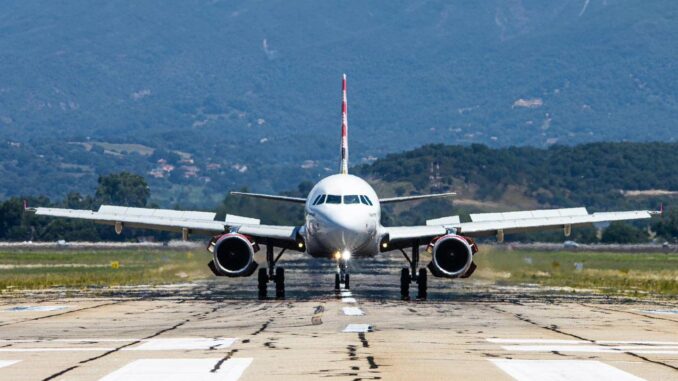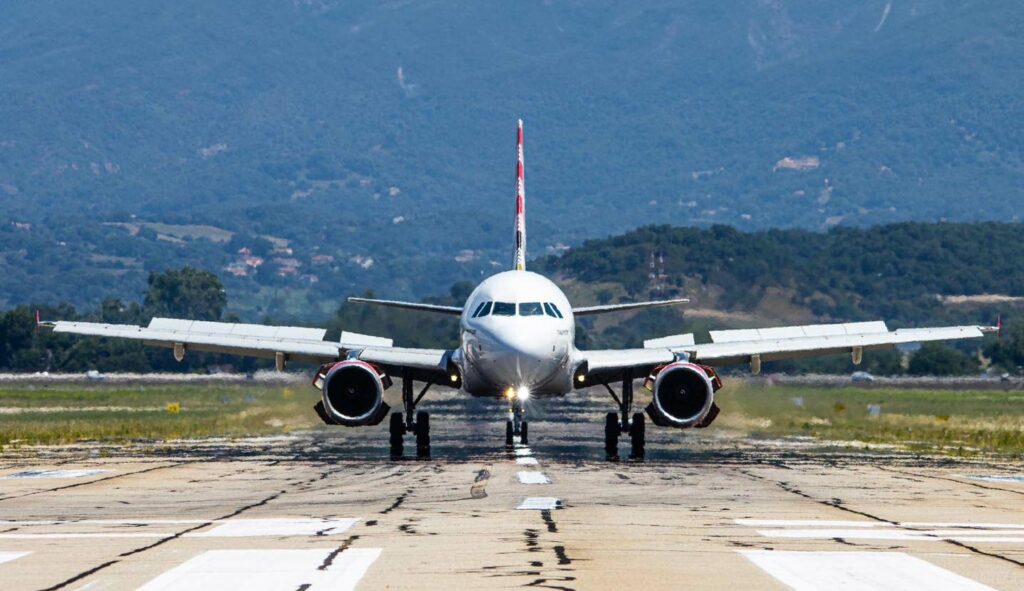
In 2023, Airbus used more than 11 million liters of sustainable aviation fuel, doubling its consumption from the previous year.
Airbus marked a significant milestone in its commitment to sustainability in 2023, doubling the use of sustainable aviation fuel (SAF) in its operations to more than 11 million liters. This breakthrough not only exceeds the company’s initial targets but also contributes to a considerable reduction in CO2 emissions, aligning Airbus with global efforts to mitigate the environmental impact of air transport. The initiative is part of a wider strategy to encourage the adoption of SAF among airlines, with Airbus leading the way in supplying aircraft powered by this greener fuel.
A strategy for the future of aviation
Airbus’ switch to SAF is a proactive response to climate challenges, illustrating a transition to more sustainable practices in the aviation industry. SAF, produced from renewable sources such as used oil and agricultural residues, offers a greener alternative to traditional kerosene, helping to reduce greenhouse gas emissions. In 2023, Airbus not only achieved its target of using 10% SAF in its operations, but surpassed it, resulting in a reduction of 23,587 tonnes of CO2. This is accompanied by an increase in the availability of SAF to customers during aircraft delivery, reinforcing Airbus’ commitment to the decarbonization of aviation.
Background and international collaboration
Airbus’ commitment to SAF is part of a broader context of environmental awareness and international regulations aimed at reducing the carbon footprint of the aviation sector. Airbus initiatives, such as offering SAF at no extra cost to airlines and partnering with the likes of Air France to use SAF on European routes, demonstrate a desire to accelerate the transition to cleaner aviation. These efforts are complemented by test flights and strategic agreements, such as the one signed under the ACT-SAF initiative of the International Civil Aviation Organization (ICAO), to assess SAF resources and production in South America.

Implications and challenges ahead
The growing adoption of FAS by Airbus and its partners signals a positive shift towards reducing aviation emissions, but also raises challenges relating to the production, logistics and cost of FAS. While FAS represents a promising solution for mitigating aviation’s environmental impact, its large-scale production and integration into existing infrastructures require significant investment and extensive collaboration between aircraft manufacturers, fuel suppliers, airlines and governments. Despite these obstacles, the Airbus initiative illustrates an important step towards achieving sustainability goals, and could serve as a model for the industry.
Towards sustainable and collaborative aviation
Airbus’ commitment to SAF in 2023 represents a major step forward in the quest for more sustainable aviation. By doubling its SAF consumption and actively promoting its use among customers and partners, Airbus is not only reducing its carbon footprint, but also paving the way for a greener aviation industry. The initiative reflects a growing awareness of the importance of sustainability in aviation, and underlines the crucial role that aircraft manufacturers can play in the transition to alternative fuels. With continued innovation and international collaboration, the future of aviation looks bright, with SAF as the central pillar of a global strategy for cleaner skies.
War Wings Daily is an independant magazine.